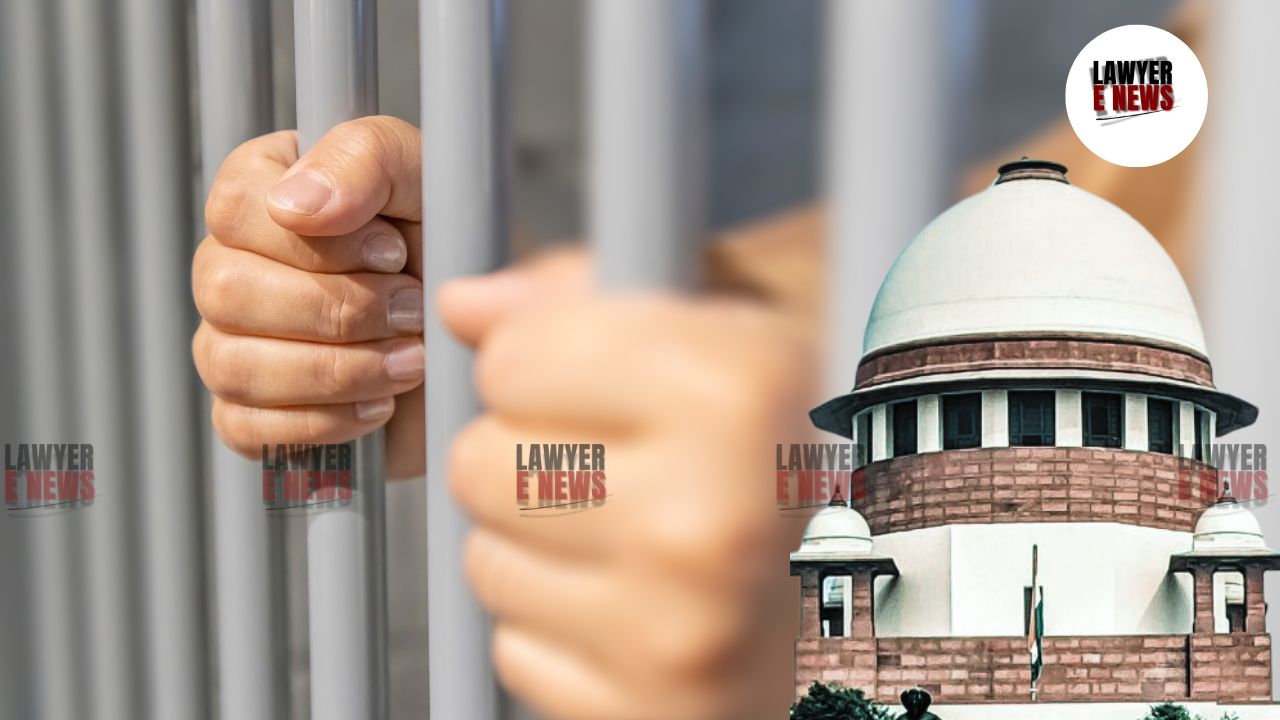-
by Admin
15 February 2026 5:35 AM



The Supreme Court allowed an appeal filed by Vikram Singh @ Vicky, granting him regular bail in connection with a case involving serious charges under the Indian Penal Code (IPC), the Information Technology Act, and the Protection of Children from Sexual Offences (POCSO) Act. The Court overturned the Rajasthan High Court’s rejection of bail, citing prolonged pre-trial detention, the near completion of trial, and the victim’s hostile testimony.
The appellant was arrested in connection with FIR No. 636/2023 registered at Bajaj Nagar Police Station, Jaipur, for offenses including kidnapping (Section 363 IPC), sexual assault (Sections 376(2)(n) and 376D IPC), and aggravated sexual assault under the POCSO Act. Additional charges were also framed under the Information Technology Act for allegedly publishing explicit content (Section 67A).
The Rajasthan High Court, in its order dated July 3, 2024, denied the appellant’s bail application, prompting him to file an appeal before the Supreme Court.
The Supreme Court heard submissions from both parties. The appellant argued that he had been in custody for 14 months and the trial was nearing conclusion, with only three witnesses left to be examined. The victim’s deposition had already been recorded, during which she turned hostile, casting doubt on the prosecution’s case. The appellant further contended that he needed bail to prepare his defense and lead evidence during trial.
The State, however, opposed bail, arguing that the victim and her family were under threat despite the appellant being in custody. It urged the Court to deny bail until the trial was concluded.
The Court acknowledged that the appellant had already been in custody for a substantial period of 14 months and noted that the trial was nearing completion. With the victim’s hostile testimony reducing the likelihood of conviction, the Court saw no reason to continue the appellant’s pre-trial detention.
The State’s allegations of threats to the victim were dismissed due to a lack of material evidence directly implicating the appellant. The Court emphasized that bail cannot be denied merely on the basis of vague apprehensions or unsupported allegations.
Reiterating the settled principle that “bail is the rule, and jail is the exception,” the Court stated that pre-trial detention cannot continue indefinitely, particularly when the trial is progressing steadily. Prolonged incarceration, the Court observed, amounts to pre-conviction punishment, which violates the principle of personal liberty guaranteed under Article 21 of the Constitution.
The Supreme Court allowed the appeal, setting aside the High Court’s order and directing the Trial Court to release the appellant on bail. The Court imposed conditions to ensure the integrity of the trial, including:
The appellant must fully cooperate with the trial and attend all hearings.
The appellant must not misuse the liberty granted to him or attempt to tamper with evidence.
Any violation of the conditions would result in the cancellation of bail.
The Court also underscored that the appellant’s release on bail would not interfere with the trial proceedings, as the remaining evidence could be examined in a fair manner.
This judgment highlights the Supreme Court’s emphasis on balancing the gravity of allegations with the constitutional right to liberty. The decision reinforces the principle that prolonged pre-trial detention should not substitute for conviction and that the presumption of innocence must be upheld until proven guilty.
By granting bail, the Court has also reaffirmed that allegations of serious offenses alone cannot justify indefinite incarceration, especially when the trial is nearing conclusion and the accused poses no demonstrable threat to the process of justice.
The ruling is a clear application of the principle that the purpose of bail is to ensure the presence of the accused during trial, not to impose punishment before conviction.
Date of decision: 03/01/2025
